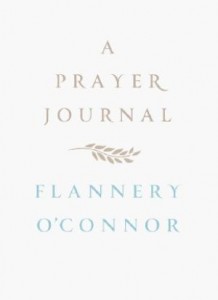(Again, I’m writing here outside of my usual cultural and entertainment wheelhouse. This is the outline for a presentation I gave to the RCIA program at St. Dorothy’s Church in Glendora. I’m sharing it here because I had a number of requests. I qualify this by saying that I am not a theologian and it shows. I’m really just a serious lay person who’s had enough theology to be appropriately in wonder. Secondly, what follows is a summary and not meant to be exhaustive. It was really just my outline and it will no doubt feel a little flat because it doesn’t have any of the supporting anecdotes. Nor the Sicilian walking around ranting and gesticulating. )
It’s appropriate that we start the journey of the study of Christianity with the summary of the life of a Christian that Jesus gave us in the preamble to the Sermon on the Mount. In the same way that the Bill of Rights is the essence and spirit of all that follows in the US Constitution, the Beatitudes provide the core of the Christian difference that is expounded on in the rest of the New Testament.
“How Happy are the….”
The word “beatitude” is the first and most provocative doctrine contained in the Sermon on the Mount. Jesus names his list of eight qualities of the nature of a Christian as “The Happys.” Reading the stuff of the Beatitudes, it really does make you stop and look back at Jesus and scratch your head. Poverty, mourning, hunger and thirst, persecution – “Lord, when you say “happy,” I don’t think you mean what I mean. He doesn’t; He means much more.
Calling these eight descriptors the cause of human happiness situates us in God’s perspective – we call it reality – that the whole reason for Divine Revelation, for the incarnation, for the example, teaching, passion and resurrection of the Word of God is so that men can be lifted from the misery of sin and death into the happiness of God. Beatitude is not the fleeting happiness of pleasure. It’s the fulfillment of our destiny. It’s the satisfaction of the longings which are built into us as rational, spiritual, immortal creatures. At the same time, beatitude starts in this life. I’m reminded of Pope JPII’s statement that heaven and hell are states of being which begin here on earth.
Note too, that Jesus says “Blessed” to indicate that Christians are both happy and gifted. We cannot live these things without the life of God in us. We are happy because we have been gifted to live these things.
Blessed also as holy which means separate. The beatitudes will separate you from death and the life of the people who are the living dead. Jesus said, “Follow me and let the dead bury their dead.”
Finally, the Church calls the fourth stage of making someone a saint “beatification” for a similar reason. It is a statement by the Church that this person who lived among us is now enjoying the fullness of happiness of which humans are capable by our nature. He or she is living with God face to face in the state of which Jesus said, “Eye has not seen, ear has not heard, what God has ready for those who love him,” and again, “(Now that I have a body like yours), I go to prepare a place for you.”
The Sequence
The main thing to understand about the Beatitudes is that they are a sequence. They are a plan of life that unfold as stepping stones up the ladder of the way back to God. This is a notion that was first beautifully articulated by St. Augustine in his Commentary on the Sermon on the Mount. It was referenced repeatedly by St. Thomas Aquinas.
We can understand The Beatitudes like a 12-Step program – only in eight steps – in that each step is the foundation of the ones that follow. Also like a 12-step concept, we are never done with each of the Beatitude steps – or, as gifts, they are never done with us – just because we are moving on the other steps. You don’t master the Beatitudes, you cooperate with them.
Another point is that the Beatitudes are the description of a largely personal, interior journey. The Beatitudes have been sold too much in recent years as some kind of social justice program. It leads us down the wrong road to focus on that because the Kingdom of God that reigns in Christians is within. It isn’t about how much stuff you have and how many wars you stop. It’s about you alone with the alone working out your own beatitude as the always more perfect vision of the Face of God. Of course, there is a reason 12 Steps programs take place in a group and the presence of the Church as support group is a constituent element to walking on the way of the Beatitudes. Namely, as St Augustine says, each Beatitude is tied to a particular gift of the Holy Spirit, and we receive those gifts – sanctifying grace – through the People of God. But if you have a vision of the Beatitudes as a scurrying around at protest marches and agitating for political reform, you are missing the point. That isn’t where happiness is. It might be what happiness does. But Christianity is an embrace of being not doing.
Blessed are the poor in spirit, the Kingdom of heaven is theirs.
All 12-Step programs begin with what they call a “moment of clarity.” Christianity starts with that too. The moment of clarity is at once a prudential sense of one’s self and acceptance of God’s self.
Poverty of spirit has nothing to do with how much stuff has you. It is to recognize that you are helpless over your fallen human nature in the way the alcoholic recognizes he or she is helpless over alcohol. You are helpless over your attractions to sin. You are helpless over your fear, your pride, your lust, your selfishness, your irritation, your dislikes and your affections. Your heart longs for meaning and depth but you never seem to be able to step up and be whom you know you could be. You are helpless over your body which wants to eat more than it should, to lay around when it should move, to take what it wants when it wants it, to reach for easy forbidden pleasures even when our mind tells us they are destructive. You make resolutions and they end up existing only to shame you in your schlepitude.
Blessed are you when you know this is who you are.
If the fall of Adam was the siren call, “You shall be like God,” the beginning of redemption is the impoverished surrender, “I am not God.”
The second aspect of poverty of spirit is recognition that we didn’t make ourselves and hence we proceed from One who was rich enough to have made us. Our poverty of spirit is saved by God’s bounty of spirit. Because our Creator loves us. Our brokenness incites only His compassion. He sent His Son to take on our nature so that we could approach the Godhead as sons and brothers. The Spirit comes to us and continually offers us the life of God Himself. We accept it, we turn away, we feel remorse and turn back, He meets us and showers us with good. As Pope Francis noted, “God never tires of forgiving us. It is we who tire of asking for forgiveness.”
So, poverty of spirit is the recognition of how poor we are compared to the richness of God. Again poor as beings. It is the recognition of our insufficiency which would have been true of us even if we weren’t broken by Original Sin. We still wouldn’t be godlike without our sin. Ironically, because of Christ becoming human, we are now all God-like even with our sin.
This is seeing ourselves the way we truly are. And Jesus insists that embracing this reality makes for a happy life. As the beatitude promises, salvation is made of this, so this also makes for a happy forever.
Blessed are those who mourn, they will be comforted.
This follows from a correct sense of self that is poverty of spirit. Once you accept that the Creator loves you, and you start to love Him back, you immediately want to become a place that brings delight to God’s heart and not sorrow. The natural result of seeing ourselves is to mourn the sin that keeps driving us from God to our mutual sorrow.
We mourn all that is groaning in creation and all the “problems of pain.” But especially we mourn our own darkness and attraction to evil. We live in the constant polarity of God’s goodness and our instability, weakness, selfishness, laziness, greed, lust, pride.
The beatitude doesn’t say, “Blessed are they who do not sin,” as that would be impossible. Sin is a given for us. The thing that separates Christians from the living dead is the way we regard our sin. St. Bernadette of Lourdes said, “A sinner (ie. one in real danger) is one who loves his sin.” Christians mourns our sins as the failure to be a loving response to Someone who deserves better from us.
So, the Beatitude tells us, blessed are they who know that, left on their own outside the relationship with God, there is only death. Blessed are they who don’t hide themselves in fear and deny their darkness, but rather, acknowledge their errors like the foibles of a small child before his Father. Blessed are they who throw themselves into God’s arms and trust in His love. Blessed are they who want to be what God fell in love with when He brought them into being.
The opposite of someone who happily mourns his sin is a life of escapism, denial, blaming, excuses, frustration and despair.
We call this life of mourning “living in reconciliation” and as the Beatitude promises, the one who seeks to be reconciled will be satisfied.
(Stay tuned for “Blessed are the Meek” and more!)











